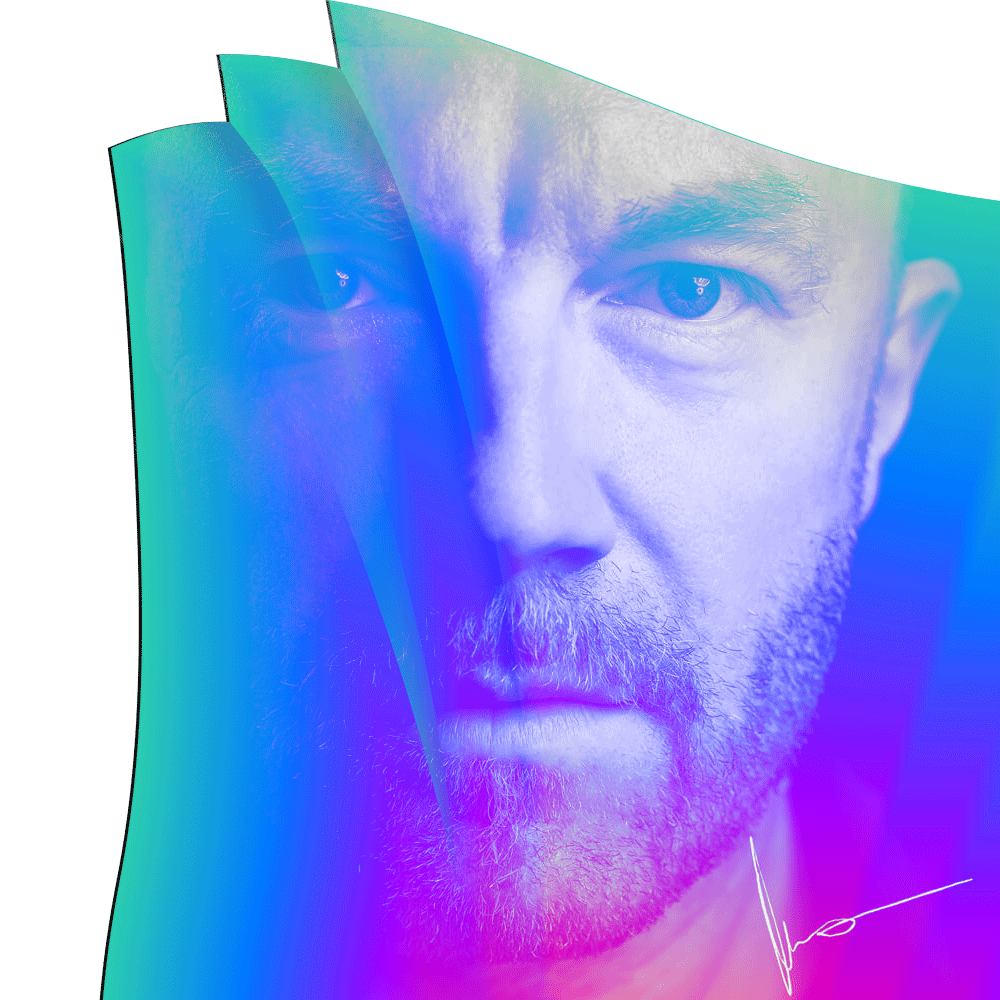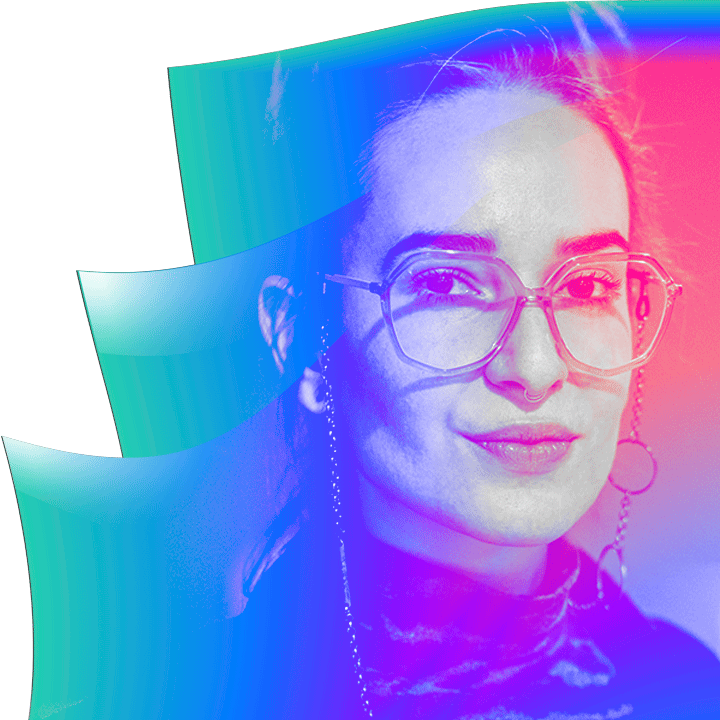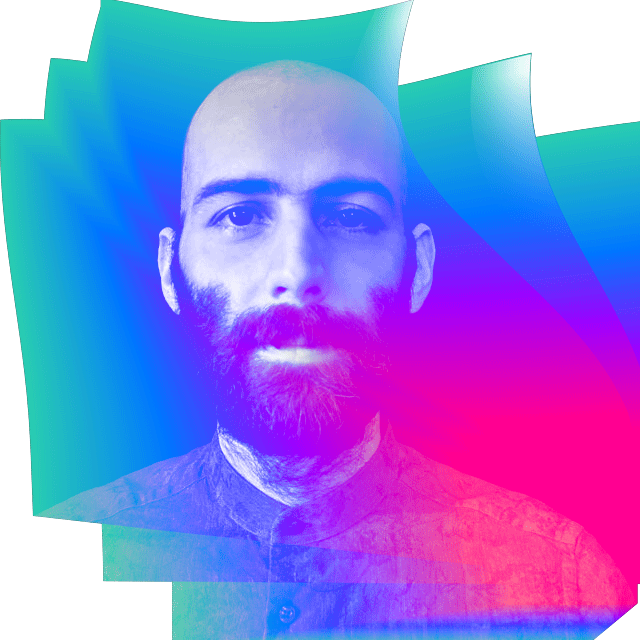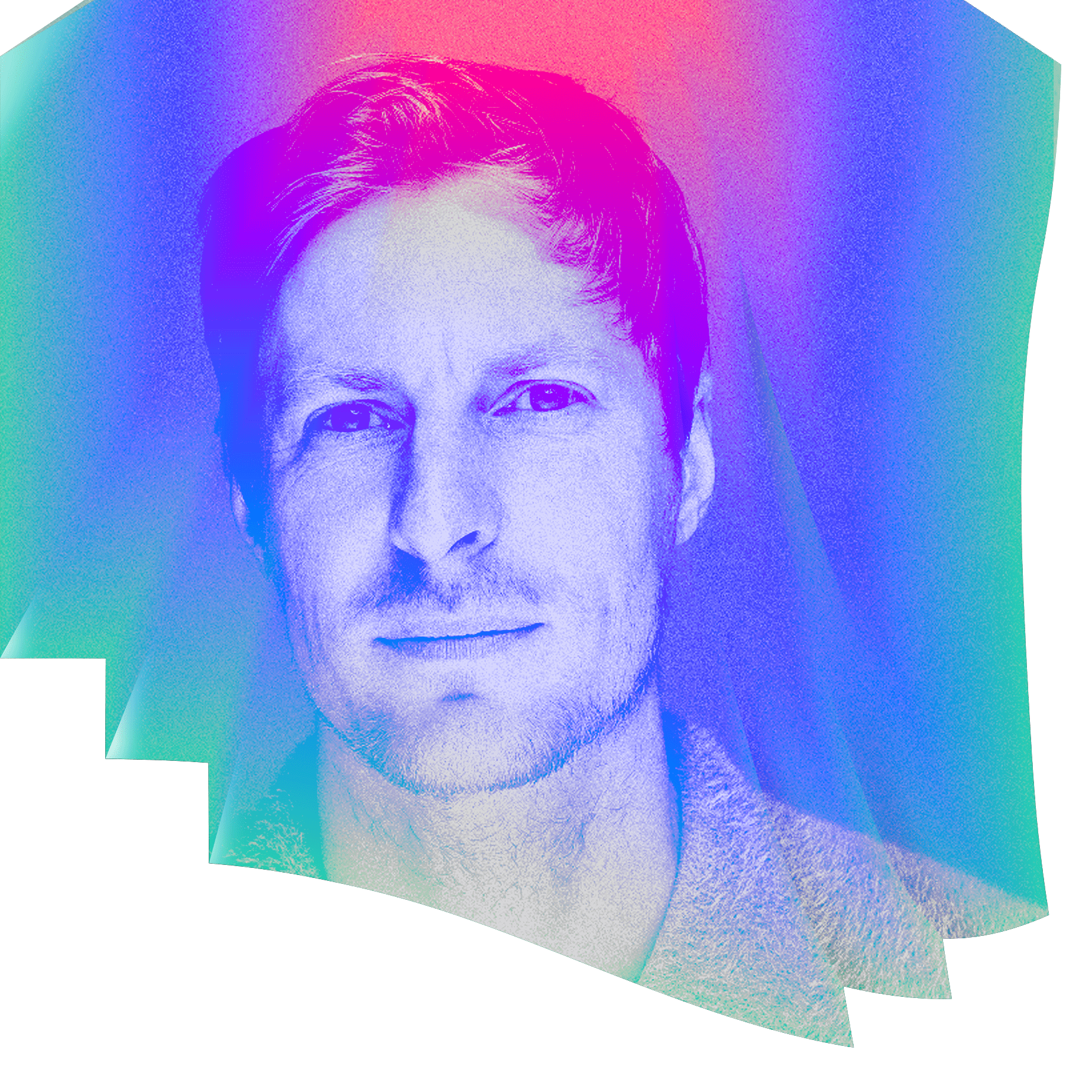


pETER Purg
Pixxelpoint 2025: Resonating Realities in the Fourth Space takes place in a unique twin-town European Capital of Culture, a composite reality of double periphery ideal for sharing both an ecocritical inner eye and a feminist reflex over a consumerism-crazed egomaniac wasteland. One festival, two weeks of shared presence, four days and nights of get-togethers, eight exhibition venues, sixteen events. Including all of you beautiful people and them other beings.
An algorithmic isolation pleasantly hacked to counter the technofeudal relationships with self-chosen peace-making kin. Share responsibility for local climates and spark collective action. Heal the helicopter-parented self and seed wild imagination. A wanna-be off-grid borderless zone, between Nova Gorica and Gorizia, among brownfield nonlocations, riversides, legendary squats, private impromptu galleries, and cult public places.
Forget polished white cubes — anyways they all seem round nowadays. A range of radical installations, bold performances, edgy workshops, and subtle participatory formats, all nourished by locally sourced food and wine. At Pixxelpoint 2025, real talk fuels intergenerational and cross-cultural learning, uplifting queer and marginalized voices. Not the only get-together that turns audiences into collaborators, the two-day symposium fuses theory with action.
Building networks and lasting alliances of different flavors brings resilience to the local youth and communities who get to co-own the festival. And when we talk about the future, art as an expanded vision of it refuses to stay safe — imagining worlds beyond the capitalist gridlock, tech addiction, and Eurocentric narratives. The Fourth Space you co-build makes you real.
pETER Purg is an Associate Professor of New Media at the School of Arts, University of Nova Gorica, and until recently, he also served as Dean of the School of Humanities. He holds a PhD in Media Art, Communication, and Literary Studies from the University of Erfurt.
His research focuses on intermedia and research-based art, particularly on the roles of the humanities and arts in ecology, degrowth, and community practices. He has co-designed and led numerous international projects and serves as a jury member, evaluator, and curator in contemporary art and its intersections with science.
He was part of the preparatory team for Nova Gorica’s bid for European Capital of Culture 2025, co-founded the Xcenter creative hub, and curated the 2019 Pixxelpoint festival. As part of GO! 2025, he leads the exhibition and performance series Post-Mobility and Xmobil – a mobile laboratory for exploring the intersections of science and art.

Katarina Podobnik
Pixxelpoint 2025: Resonating Realities in the Fourth Space intervenes in a time of systemic fragmentation and affective exhaustion. As the “third space” of civic cohesion gives way to techno-capitalist spectacle and cultural isolation, the festival proposes the Fourth Space – a situated, resonant dimension for shared meaning, embodied resistance, and speculative renewal.
Stretched across the dual periphery of Nova Gorica and Gorizia, while entangling a plethora of international artistic voices, this year’s edition unfolds in transitional zones – brownfields, riversides, squats, and vernacular architectures – where infrastructures of imagination are rebuilt in real time. Artistic practices here do not merely respond to crisis but open sensorial and cognitive bandwidths for plural, interwoven worldviews.
Instead of indexing identities or perspectives, Pixxelpoint 2025 calls for a mythopoeic reorientation: toward overlooked knowledge, suppressed intuitions, and communal fictions that make living thinkable again. The Fourth Space becomes a shifting ground – not a fixed ideology, but a porous terrain where forgotten cosmologies, somatic memories, and minor gestures co-compose other ways of being with the world.
Workshops, performances, installations, and discussions interlace critical theory with local materialities, nourished by food, soil, stories, and relational ethics. It is a festival that values presence over product, relation over resolution. At Pixxelpoint 2025, art is not escape but a way back in. Toward one another. Toward the possible. Toward a world not yet fully named.
Katarina Podobnik (1991, Rijeka) is an art historian, art critic, and curator. She works as an assistant at the Academy of Applied Arts, University of Rijeka, where she teaches courses in modern and contemporary art, and she is a PhD candidate at the Faculty of Humanities and Social Sciences, University of Zagreb.
In her curatorial work, she primarily presents younger generations of contemporary artists in Croatia, with a particular focus on installation and performative practices. Among her notable projects are the traveling exhibition Bridges (2016–2018, Ljubljana, Rijeka, Belgrade, Novi Sad, Zagreb) and Seven Faces of the City (2021–2023, Rijeka, Novigrad, Sarajevo). In 2021, she curated Croatia’s first NFT exhibition, (De)construction: The Beginning.
As an art critic, she has written for several Croatian art magazines, is currently an active correspondent for Croatian Radiotelevision (HRT), and is the founder as well as the first editor-in-chief of Artkvart.hr, an online magazine dedicated to art, culture, and social events. She is currently employed as an Advisor for the Protection and Preservation of Cultural Heritage at the City of Rijeka.

Francesco Scarel
Patient:
You, a curious being in search of meaning, connection, and imagination.
Dosage & Duration:
Administer from November 13–23, 2025.
Take daily and in community, with open senses and flexible minds.
Diagnosis:
Chronic disconnection of disciplines, saturation from visual noise, symptoms of post-digital fatigue, lost in polycrisis and acute longing for resonance.
Minimum Intake: 3 consecutive days & nights.
Maximum: 10 days.
Prescription:
1 daily dose of Pixxelpoint Art Festival.
Method of Administration:
Locate yourself in Nova Gorica/Gorizia.
Interact with artworks, people, environments.
Resonate deeply with the world around you.
Active Ingredients:
Immersive experiences in the Fourth Space.
High-frequency interactions between art, science, and society.
Experimental digital & posthuman remedies.
Deep resonance with non-human voices and hybrid identities.
Participatory workshops, site-specific installations, and sonic pathways.
Cautions & Side Effects:
May cause irreversible expansion of perspective.
Possible Symptoms Include:
Critical empathy, speculative thinking, poetic awareness...
Francesco Scarel (born in Gorizia, based in Trieste) is an independent researcher, science communicator, and artscience curator. His work bridges science and art for a broader audience. He earned a PhD in Organic Chemistry and Nanotechnology from FRIAS, Freiburg (2013), followed by a Master’s in Science Communication at SISSA.
In 2024, he founded Liminal Research ETS, an organization dedicated to science communication through creative approaches. He serves as the artistic director of Festival dell’Acqua in Staranzano and curates events at the Scienza e Virgola festival. In 2022, he curated the Artscience Day at AREA Science Park in collaboration with MEET Milano.
His projects include Phonosynthesis and ceNERE MEMORIE. He collaborates with institutions such as SISSA, IUAV, Xcenter Nova Gorica, PiNA Koper, and Dobialab.

Benjamin Gruner
A world shaken by multiple ecological, social, and economic crises—and permeated by war—is increasingly losing its collective orientation. Fragmented realities are displacing common understanding and shared meaning, especially in the face of unresolved global challenges such as climate change, migration, and shifting power relations. In the midst of this polycrisis, the space between art, science, and society—once imagined as a unifying “third space”—no longer provides a protective or resonant dimension beyond work and family.
Pixxelpoint 2025 therefore opens up a Fourth Space: a dimension both new and familiar, where people can sense the vibrations of their environments and relationships, their perception, and their shared production of meaning. With a diverse program of visual and performative artistic practices, the festival challenges dominant ways of thinking and the self-referential traditions of toxic, Eurocentric solution idealism.
Through a conscious reconstellation of art, science, and society, the works on display, collaborative formats, learning spaces, and discussions encourage exploration of new paths toward collective knowledge and social transformation. Artistic thinking, rooted in (re)constructive creative practice, opens speculative spaces of possibility: a Fourth Space that neither rejects nor misuses science and technology, but employs them responsibly for a shared, livable future.
Benjamin Gruner (1989, Chemnitz) is a cultural manager and curator. He is the artistic and managing director of the Spinnerei e.V. association, where he leads interdisciplinary projects such as the Pochen Biennale, Fête de la Musique, and the “enter – Young Cultural Region Chemnitz” program.
He developed the “enter” program with the German Federal Cultural Foundation as one of the key legacy projects of Chemnitz2025 – European Capital of Culture. Since 2020, he has co-authored the program section “EASTERN STATE OF MIND” and, since 2021, co-curated projects exploring garage complexes as cultural spaces.
In 2022, he completed a Master’s degree at DIU Dresden on participatory cultural projects. He has contributed to “3000 Garages” for Chemnitz2025 and festivals such as Ibug and OSTRALE Biennale. As an expert and organizer, he has worked in cities including Ljubljana, Prague, Wroclaw, Rijeka, and Kyiv. In 2024, he plans new projects with partners in Ghent, Lviv, Oulu, and Nova Gorica.